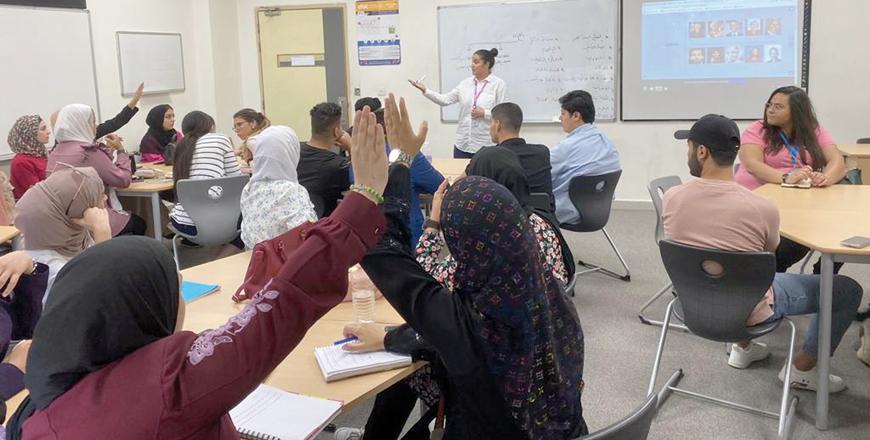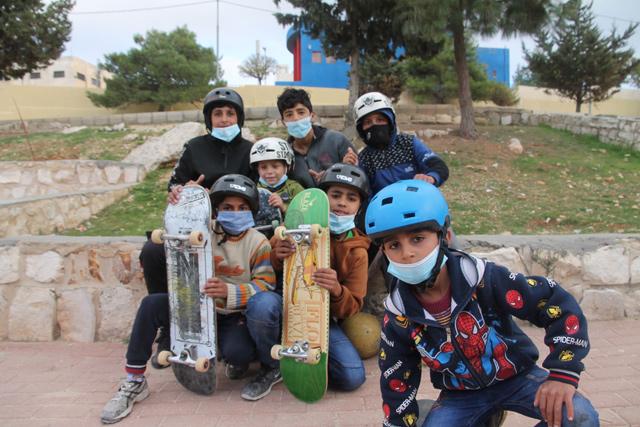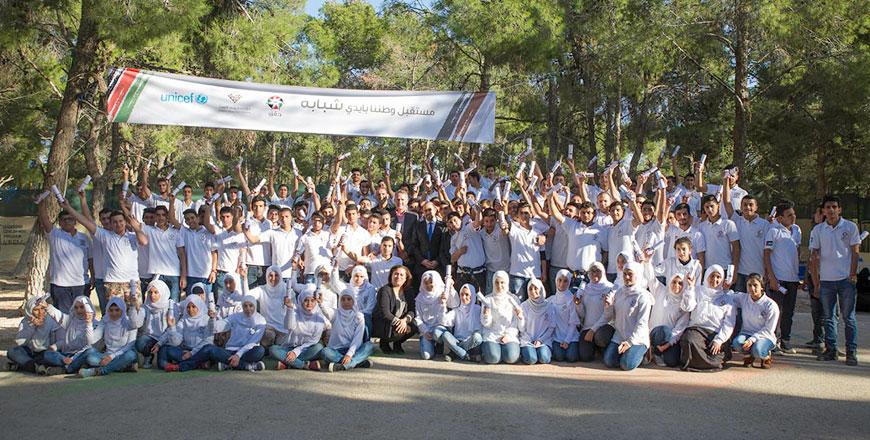You are here
UNICEF programme teaches leadership skills based in gender equality
By Batool Ghaith - Jun 22,2022 - Last updated at Jun 22,2022

UNICEF’s Leadership Programme, launched in August 2021, aims to empower young people aged 16-24 across the Kingdom (Photo courtesy of UNICEF)
AMMAN — UNICEF’s Leadership Programme, launched in August 2021, aims to empower young people aged 16-24 across the Kingdom.
The programme was originally created to empower women amid the challenges they face in society, but was later expanded to men and boys too as “men are always partners with women”, Gender Expert at the Youth and Adolescent Development UNICEF Jordan Country Office Safia Jobara told The Jordan Times.
She said that the programme focuses on the gender component and building soft skills, which is part of UNICEF’s gender action plan.
“The programme is inclusive of every one: People with disabilities, special needs and refugees from anywhere in the world. We aim for capacity building and up-skilling in order to help those young people excel in their lives and inspire them to lead,” Jobara said.
Today, the programme is designed to reinforce the self-confidence and leadership of the young women and to encourage young men to become “male champions”, supporting and working with their female counterparts side by side towards mutual empowerment, according to a UNICEF statement.
The central approach of this programme is to integrate “gender components” in the curriculum in order to provide young women and men the tools and space to reflect on gender roles and social norms, the statement read.
Between September 2021 and May 2022, 2,539 students, including 830 refugees, were enrolled in the programme, including 1,121 women and 1,418 men.
The programme, in collaboration with the Ministry of Youth, was implemented at six youth centres in Jordan last year, according to Jobara.
This year, the programme will be implemented in 36 centres across the Kingdom with several UNICEF partners, who have helped UNICEF reach different governorates and conservative areas, such as Wadi Araba, Jobara said.
According to Jobara, the programme has had “immense success” since last year, as students from different governorates have created initiatives within the programme, which is part of the training.
She said that in the beginning they faced some challenges accessing families in certain governorates and more conservative areas, however, the facilitators have since been able to “built trust” with the local communities.
Issa, a 24-year-old who participated in the leadership programme training, noted how the programme has helped him realise many of the “falsely rooted ideas” he was brought up with.
“The programme changed my perspective and thoughts regarding lots of things, especially from a gender-point of view,” he said during a discussion session on Tuesday at the Luminus Technical University College (LTUC).
LTUC was the first institutional partner where the programme started and is now part of the foundational courses, according to UNICEF.
Issa said that the leadership course highlighted the difference between “a boss and a leader”, noting that it is very important to know how to be a leader both professionally and in one’s personal life.
“I like to always take every opportunity I can get and this programme has helped open my eyes and set my foot on the right path before I start my BA journey,” Issa said.
Anwar, who graduated with a bachelor’s degree in accounting, highlighted the significance of such programmes and courses, specifically leadership.
“Leadership is a part of everything we do in life, which is why it is important to raise more awareness of it especially among the young people of this generation,” Anwar said.
She noted that the programme helped her gain the soft skills she needed post-graduation, as well as a boost in self-confidence and a “huge personality change for the better”.
Salsabeel, a participant with special needs in the programme, noted how it helped her to listen and express herself better to people, in addition to the handful of other skills.
Multiple male participants emphasised the benefits of the emotional intelligence training session, which they took as part of the programme, noting that it changed how they process and deal with their emotions, as well as how to control their feelings and reactions.
Shahd Jallad, the programme trainer, noted that many of the students “were unable to express themselves at the beginning”.
“It is important to connect with the students and to make them feel comfortable, I reassured them that I am a friend rather than an instructor, which encouraged them to speak out and to be more interactive, therefore improving,” Jallad told The Jordan Times.
She indicated that the students come from different backgrounds, but most of them, especially males had “aggressive attitudes” and the wrong idea of leadership.
“I focused on teaching them the definition of leadership, not just at the workplace but also family wise, as leadership is integrated in everything in life,” Jallad said.
Related Articles
AMMAN — UNICEF in partnership with 7Hills, the Greater Amman Municipality (GAM) and the Ministry of Youth, is to build a community skatepark
AMMAN — The Crown Prince Foundation (CPF) on Friday concluded the activities of the “Haqiq with UNICEF” programme, held by UNICEF-linked Ale
AMMAN — Weeks into co-founding a business project with her friend, Saja Beltaji, 21, realised that she needed improve upon her marketing ski


















